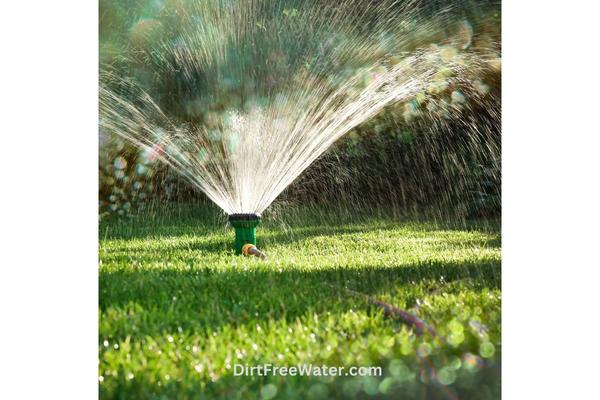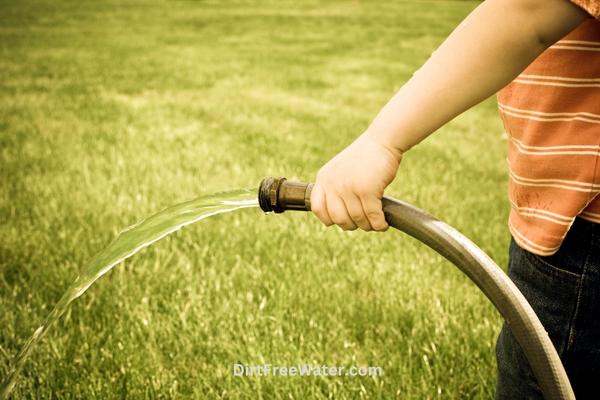Water Softener Discharge on Lawn: Safe or Unsafe for Plants?
Are you also falling in love with your water softener but wondering if its discharge impacts your lawn?
You have landed on the right article. Below, I have written in detail whether the water softener’s discharge on your lawn is safe or unsafe.
Let’s dive in!
Can Waste from Water Softener be directly discharged into Garden?
The waste from the water softener should not be directly discharged into your garden as it threatens the plants.
Osmotic pressure, which the plants use to maintain and regulate their water needs gets severely disturbed if there is a direct discharge of sodium or potassium chloride.
Also, the brine discharged by your water softener accumulates salt at great levels. As most of plants cannot put up with salt, this directly discharged waste from your water softener will indeed kill these plants.
Does Draining Water Softener hurt Lawn?
As water softener backwash has high levels of salt, draining it outside on your lawn will affect both the soil and the plants, negatively.
Draining water softener backwash on your lawn will cause the soil quality to go down and also make the grass somewhat yellowish in color. With time, the plants and the grass will start burning and, ultimately, die due to the high salt levels.
The plants will be unable to get enough of the ingredients they need to grow as the sodium added to the soil will give rise to a buildup of minerals that block the growth of these plants.
So, draining water softener backwash directly in your lawn has negative impacts, but there are ways to help you prevent your lawn from all these hardships.
Does Soft Water Backwash Kill the Grass?
As you have read until now, the soft water backwash will, over time, kill the well-maintained grass of your lawn.
If you keep discharging water softener backwash in your law, especially in a small selected area of your lawn, you will kill the grass.
This is because it is extremely difficult for the grass to absorb these increasingly high sodium ions or minerals continuously.
What happens is that the sodium gets stuck in the cells of the grass and plants and completely blocks water absorption. This blockage leads to dryness of grass and, finally, their death.
Remember – The grass of your lawn may survive the water softener backwash if –
1. You have a fairly large lawn, and you spread it all over the lawn.
2. The hardness level of your water softener discharge is not that much,
3. If rain pours down on your lawn and thins out the salt intake.
Can Salt in Water Softener kill Grass?
Yes, if you consistently keep discharging your water softener backwash in your lawn, it will eventually kill off the grown grass.
Even though the grass is the most capable of tolerating the high level of salt released (2300 milligrams per kilo of leaves), it will dry up and die due to the continuous discharge of backwash.
Also, not only will you lose your grass, but the soil will also degrade in quality due to the high salt levels. Then, the degraded soil will not be able to grow healthy grass. To avoid this read the other ways to backwash your water softener.

Using Potassium instead of Sodium Benefits Lawn
Using potassium instead of sodium to fill the brine tank of your water softener will benefit your health and your lawn (when backwash is discharged there.)
Potassium acts as an awesome nutrient for plants and soils both. Thus, using potassium ensures stable and healthy growth of grass and plants while maintaining or even improving the soil quality of your lawn.
Did you know – Potassium is a great nutrient that is used as a fertilizer for plants on an industrial scale?
Potassium is one of the top three macronutrients for plants, and potassium chloride (now used in your water softener) has the most potassium.
Generally, using potassium over sodium in your water softener benefits not only your lawn and the family of flora growing on it but also yourself and your own family.
Conclusion
Without the proper knowledge, do not discharge your water softener’s backwash in your lawn, as you will end up killing the grass and the plants.
If possible, opt for potassium, as it will keep your grass and plants safer, unlike sodium.

